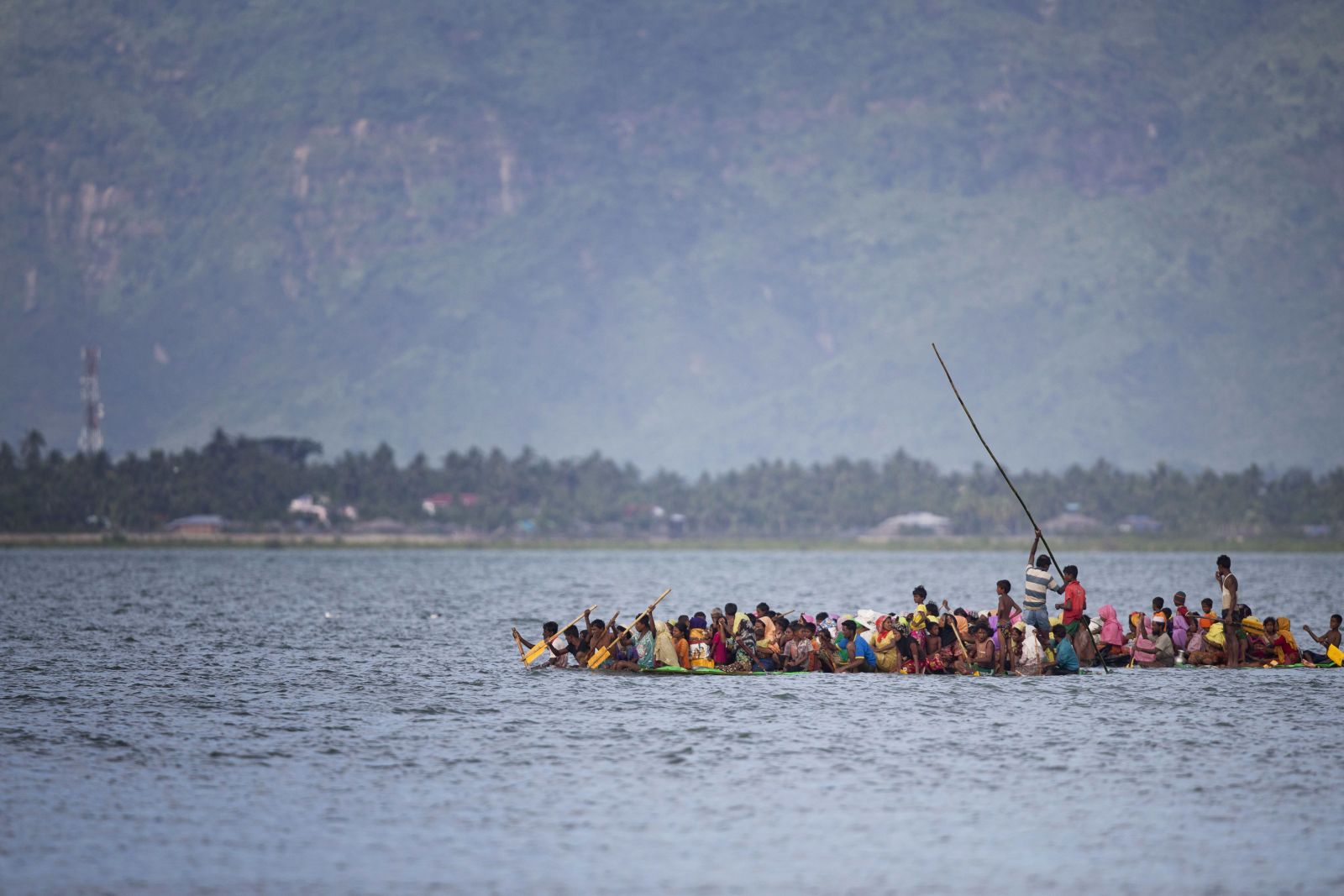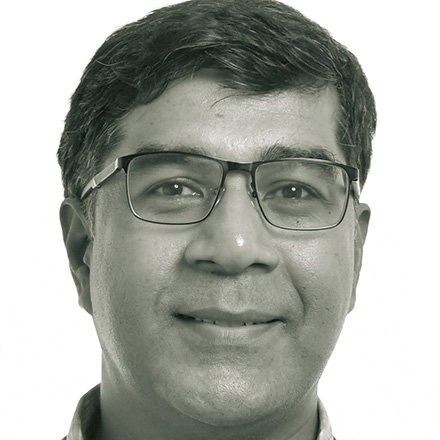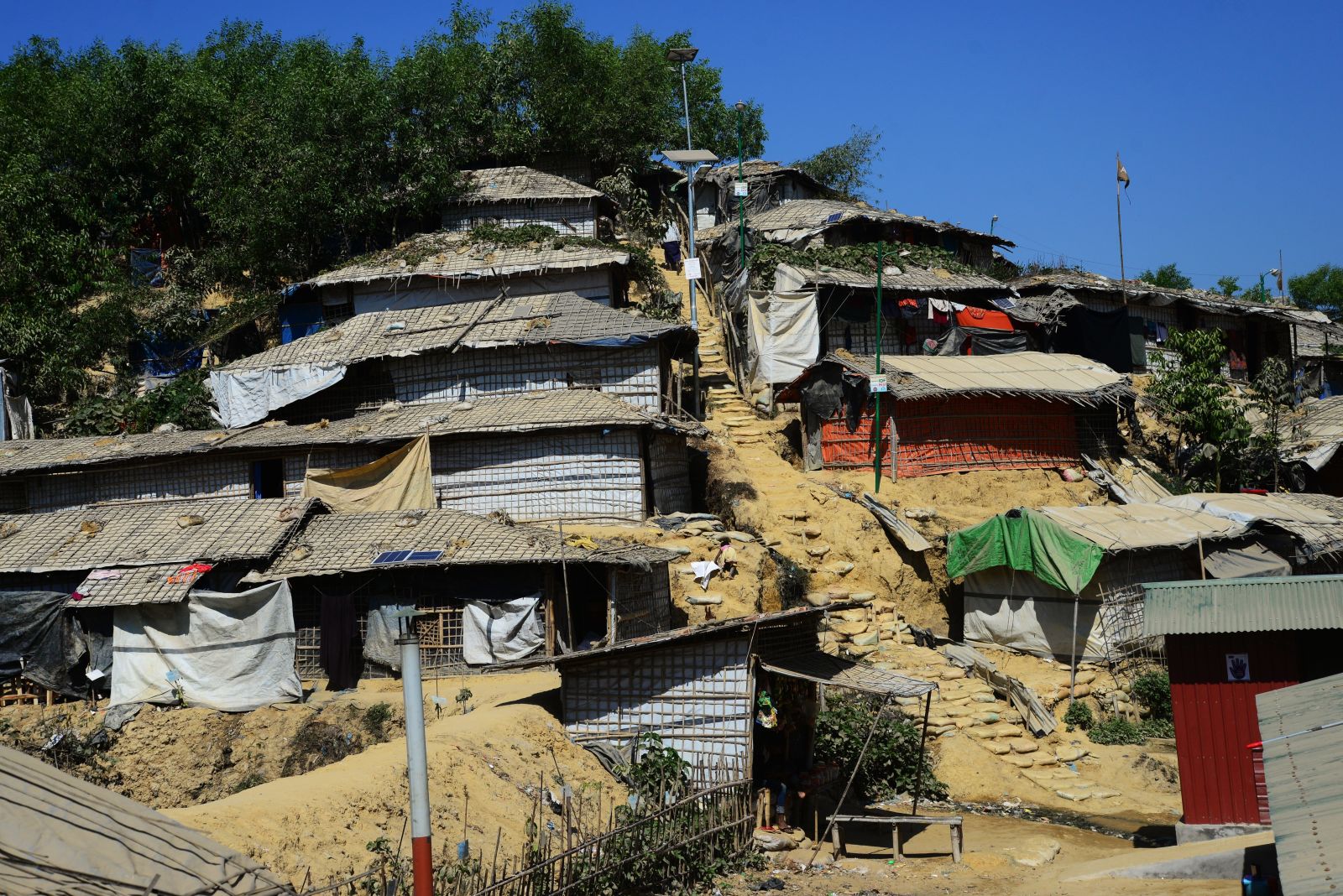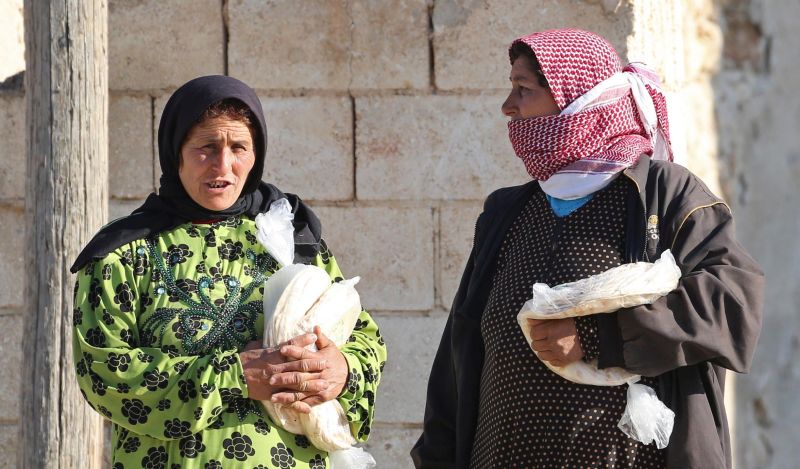Long-term refugees
Frozen lives
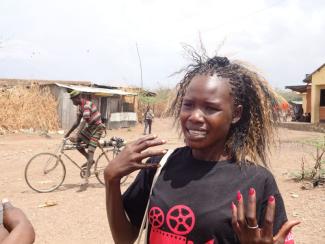
At sunset, young refugees stroll along the Kakuma-Lokichoggio road which leads from the camp to the South Sudanese border about 130 kilometres away. The scene looks pleasant, but the youngsters actually live with dashed hopes. They lack opportunities and face a stiff competition for the slim chances of ever leaving the camp.
Kakuma Camp is bigger than many Kenyan cities, but life here is very different. Masses line up to collect food rations. There are not enough jobs and not enough schools (see box "A depressing camp in Kenya's nothwest"). Thousands of people have absolutely nothing to do. Their lives become monotonous routines without ambitions, hopes or dreams. This is especially true of young people: They are about to start their life, but having only limited possibilities of taking their fate into their hands and becoming independent adults.
In theory, people are only supposed to live in the camp for a few months and then return home or be resettled to third countries. In practice, most stay in Kakuma for ten years on average.
Many refugees lapse into depression. The loss of dignity, identity and sense of belonging kills their spirit. They would like to do something to improve their fate, but they have no options. Long-term refugees are particularly prone to be depressed.
People who flee persecution, violence and death typically expect to return back home very soon. Only once they have arrived at a refugee camp, do they realise that their old life is over, and whatever position they may have held is lost. In the camps, they are no longer individuals. They lose their dignity (see box "Losing one’s dignity"). A case number is their new identity.
Precarious schools
The adults in the camps often cannot accept their fate of being reduced to an object of charity. The youth, however, are eager to embark on their life’s journey, which is strictly confined by the camp. Education is the only path out – but it is a more difficult path than it would be in any normal town.
Kakuma has various educational facilities for children. The UN Refugee Agency (UNHCR) funds 20 primary schools, and the local community runs a community-based school. However, only about 45 % of the children of primary-school age were enrolled in 2012, according to the UNHCR. Classes have up to 200 pupils in primary schools. On average, secondary-school classes have 80 students. A survey done by the UNHCR, the Windle Trust Kenya and the Lutheran World Federation in 2014 showed that about half of the camp’s children still did not attend school. Moreover, schools tended to teach over-age learners.
Students who go to school are expected to study the Kenyan curriculum and learn in English and Kiswahili. Many children don’t know these two languages, and the curricular content does not fit the environment they are familiar with. A recent study in the Journal on Education in Emergencies concluded: “The paucity of financial and material resources, restrictive curriculum and language policies, and a lack of access to teacher training amount to a crisis in refugee education in Kenya.”
Nonetheless, students in Kakuma tend to get better grades in exams than the average student in Kenya. For instance, a girl from Angelina Jolie Primary School – the school is named after the American movie star who sponsors it through the UNHCR – scored 418 marks out of a possible 500 marks in the Kenya Certificate of Primary Education (KCPE).
As a rule, those refugee children who go to school tend to study very hard, because they know that good marks are their only chance of leaving the camp. What they need is one of the highly coveted scholarships.
Dashed hopes
Kakuma Camp is managed by the Department for Refugee Affairs (DRA). This Kenyan government agency is working with – and is supported by – the UNHCR. But many other charitable organisations are present in the camp as well, covering certain issues like education.
The Windle Trust Kenya manages various scholarship programmes, supported by World University Service of Canada, the UNHCR, DD Puri Foundation and the German Albert Einstein Foundation, providing some 40 scholarships for gifted refugees to study at universities and colleges in their host country or their country of origin. For Canadian-funded scholarships the age limit is 25 years, for German-sponsored ones 28.
The competition for scholarships is merciless. Every year, hundreds of students in Kakuma apply for these scholarships which the Windle Trust can award. Students may apply up to three times. Most do not get one of those precious scholarships. Their hopes of leaving the camp are dashed, once and for all.
When students are told that they have been rejected, Windle Trust staff members witness heart-wrenching scenes. Some students get angry and demand to know why they have not been selected. Others are utterly devastated, like a young Somali girl who cried: “What can I do now? If I don’t get out of this camp, I will soon be married off. But I’ve been to school, I know there is a world out there that I want to be part of and explore, not be a housewife tied down by retrogressive cultural practices. I want to marry when I am able to give my children a life better than what I am going through. I have worked so hard for this! All my hopes were on this scholarship, just to get out of the camp.”
Some break down crying, others become suicidal. A young man from South Sudan said: “Tell me, what will I do with myself, what is there for people like me? I have tried this for the third time in three years and unfortunately failed in all attempts. My fear is that I will soon die of hopelessness in this camp, away from my country and be buried with all my dreams, hopes and aspirations. I want an opportunity to give me half a chance at life, I want to have an education, a job, wife and kids, but not like this, not here!”
It is an enormous burden to see all these bright young people being denied any opportunity to develop their talents and minds. Humanitarian aid workers are witnessing an entire generation living “frozen lives”, but cannot help. Michelle Bellino from the University of Michigan recently assessed educational opportunities in Kakuma. In her conclusion, she mentions the “tragedy that renders talented human beings into a perpetual life of destitution.”
As new humanitarian crises emerge around, funding opportunities for educational scholarships are getting fewer. Accordingly, the outlook is getting even darker for the “old case load” in Kakuma.
The donor governments must do much more in support of refugee camps. It is unacceptable that 50 % of the young generation do not get a formal education at all. And it is equally unacceptable that those who do make the effort, still lack opportunities. Host countries like Kenya do not have the means to solve the problems on their own.
Sometimes, Western governments promise long-term refugees visas, but then the political situation changes, and the visas are cancelled. In 1999, for instance, a large group of Somalis in Dadaab Camp were selected for relocation to Kakuma and possible resettlement in Western countries. After the terrorist attacks on September 11th 2001, however, the visa procedures became much more stringent for most countries. Some have become less enthusiastic about refugees from East Africa. The hopes of these people were shattered. Today, 14 years later, many are still in the camp.
Raphael Sungu is Programme Manager with a humanitarian organisation on Kakuma. He lives in Kakuma, Kenya.
rsungu@windle.org
Links:
The Windle Trust:
http://www.windle.org
World University Service of Canada (WUSC) – Student Refugee Programme:
http://wusc.ca/
Albert Einstein Foundation (Deutsche Akademische Flüchtlingsinitiative – DAFI):
http://refed.org/
